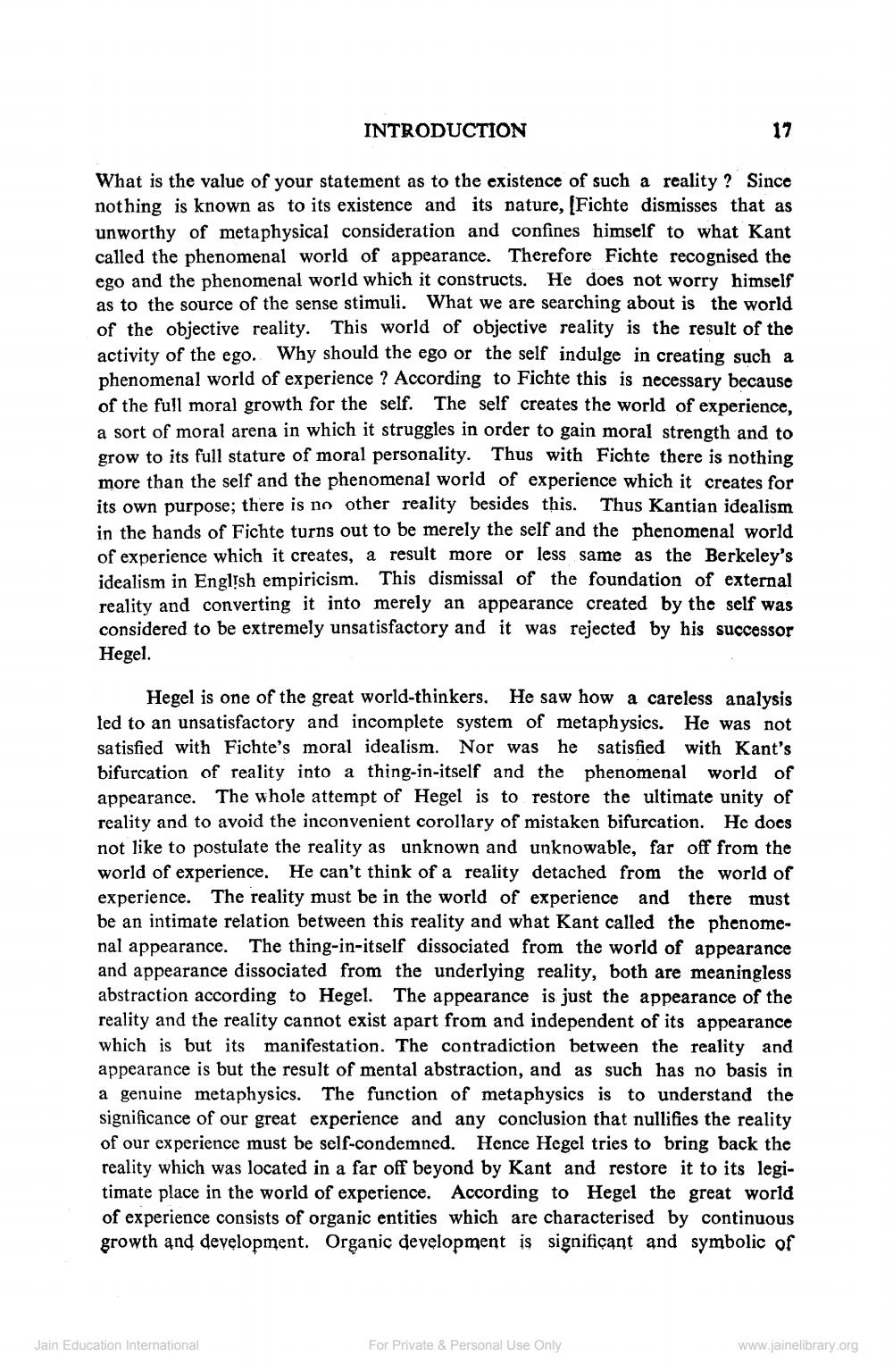________________
INTRODUCTION
17
What is the value of your statement as to the existence of such a reality ? Since nothing is known as to its existence and its nature, (Fichte dismisses that as unworthy of metaphysical consideration and confines himself to what Kant called the phenomenal world of appearance. Therefore Fichte recognised the ego and the phenomenal world which it constructs. He does not worry himself as to the source of the sense stimuli. What we are searching about is the world of the objective reality. This world of objective reality is the result of the activity of the ego. Why should the ego or the self indulge in creating such a phenomenal world of experience ? According to Fichte this is necessary because of the full moral growth for the self. The self creates the world of experience, a sort of moral arena in which it struggles in order to gain moral strength and to grow to its full stature of moral personality. Thus with Fichte there is nothing more than the self and the phenomenal world of experience which it creates for its own purpose; there is no other reality besides this. Thus Kantian idealism in the hands of Fichte turns out to be merely the self and the phenomenal world of experience which it creates, a result more or less same as the Berkeley's idealism in English empiricism. This dismissal of the foundation of external reality and converting it into merely an appearance created by the self was considered to be extremely unsatisfactory and it was rejected by his successor Hegel.
Hegel is one of the great world-thinkers. He saw how a careless analysis ted to an unsatisfactory and incomplete system of metaphysics. He was not satisfied with Fichte's moral idealism. Nor was he satisfied with Kant's bifurcation of reality into a thing-in-itself and the phenomenal world of appearance. The whole attempt of Hegel is to restore the ultimate unity of reality and to avoid the inconvenient corollary of mistaken bifurcation. He does not like to postulate the reality as unknown and unknowable, far off from the world of experience. He can't think of a reality detached from the world of experience. The reality must be in the world of experience and there must be an intimate relation between this reality and what Kant called the phenomenal appearance. The thing-in-itself dissociated from the world of appearance and appearance dissociated from the underlying reality, both are meaningless abstraction according to Hegel. The appearance is just the appearance of the reality and the reality cannot exist apart from and independent of its appearance which is but its manifestation. The contradiction between the reality and appearance is but the result of mental abstraction, and as such has no basis in a genuine metaphysics. The function of metaphysics is to understand the significance of our great experience and any conclusion that nullifies the reality of our experience must be self-condemned. Hence Hegel tries to bring back the reality which was located in a far off beyond by Kant and restore it to its legitimate place in the world of experience. According to Hegel the great world of experience consists of organic entities which are characterised by continuous growth and development. Organic development is significant and symbolic of
Jain Education International
For Private & Personal Use Only
www.jainelibrary.org




